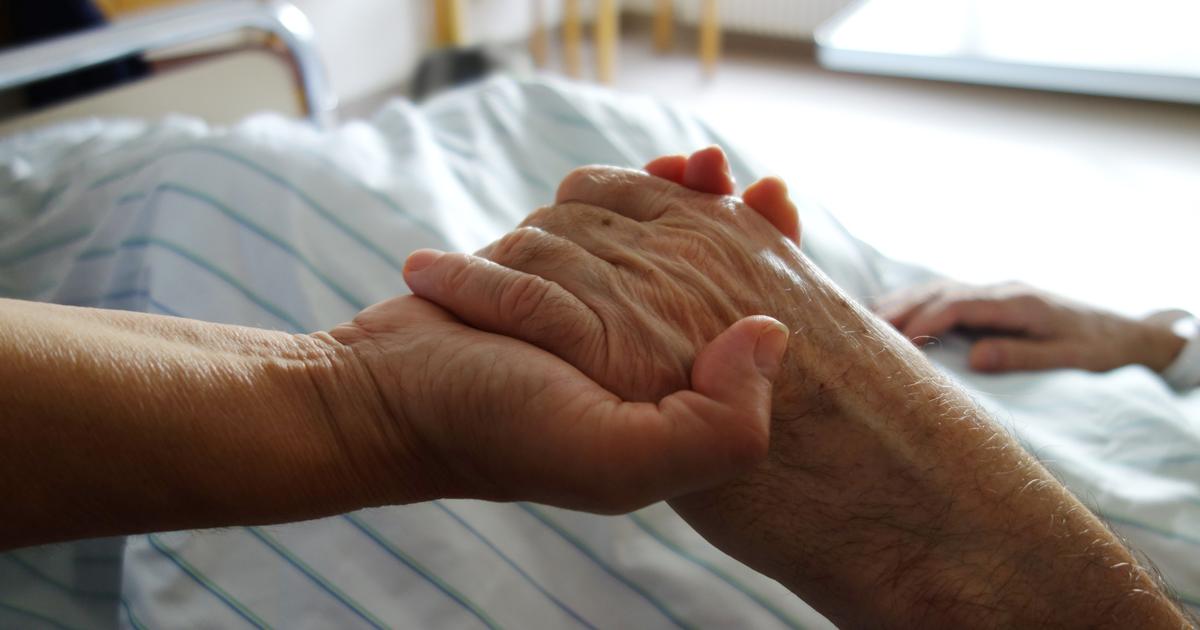The Portuguese Parliament will debate and vote on a law on euthanasia this Thursday. It will be the second attempt. In 2018, he refused to decriminalize this practice by only five votes. However, in the new Chamber, coming out of the October elections, their defenders have greater weight: mainly the Esquerda Bloc and the Socialist Party, which will be supported by environmental formations. In the previous legislature, the bill did not come forward by the vote against the center-right formations and the Communist Party, which this time would not add to knock down the proposal (97 against 133 deputies). The Socialists will give freedom to vote to their deputies, as will the Social Democratic Party (PSD), although this is not expected to alter the final result. Once approved in plenary, the approved text will go to commission for its improvement and the incorporation of amendments.
Meanwhile, those opposed to euthanasia, including the Portuguese Catholic Church, in an attempt to curb the law, support the measure being voted on in a referendum. The idea is not so much to win it, since a slight majority of the Portuguese are in favor of assisted death, but to block the legislative process, since in Portugal only a popular consultation is validated if you vote 50% of the census, something that almost it never happens (the abortion law fell due to the low participation in two referendums, in 1998, 32% participation, and in 2007, 44%).
MORE INFORMATION
The euthanasia map | Legal in eight countries- The Spanish parliament approves euthanasia
According to the most recent survey, of the Egaz Moniz University Institute, 50.5% of the Portuguese are favorable to euthanasia, the opposite 25.6%, and the rest, 23.9%, are undecided (in Spain, the polls exceed 70% in favor). In the same survey (to 1,695 people) a large majority (63.7%) said they prefer that the decision be taken in a public consultation. Several self-styled Proven movements try to collect the 60,000 signatures necessary for the Parliament to admit the referendum to process. They carry 40,000, but even if they reach the total number of signatures required, the Parliament would have to vote for their acceptance and, according to the spokesmen of the parliamentary groups, the possibility that the consultation will be held is void (only the Center Democratic and Social, five deputies, and the deputy of Chega are in favor).
Fierce debate
The debate on the street has been in the days before the parliamentary discussion. The socialist general secretary, Ana Catarina Mendes, has called for a debate "serene and enlightening, since it touches the dignity of each one."
Last Sunday, at the massive Mass celebrated in the Porto Cathedral, Canon Amadeu Ferreira focused his homily on the "desperate" fight against decriminalization, claiming that the legal change threatens the fifth commandment, you will not kill .
The Portuguese Catholic Church supports the referendum as a lesser evil. His doctrine dictates that the questions of life cannot be put to the test of popular consultations, but according to the Bishop of Porto, Manuel Linda, it is still "more deplorable that 150 or 200 deputies impose their criteria on many millions of citizens." Evangelical, Hindu, Islamic, Jewish, Orthodox, Buddhist, Adventist and Mormon leaders joined Catholics yesterday in a joint petition against euthanasia and in favor of palliative care.
Hundreds of health professionals have signed a manifesto in favor of euthanasia, although there are also other platforms that have done so against it. This same Tuesday, the College of Physicians ruled out revising its code of ethics arguing that euthanasia violates the ethics of doctors, who "are prepared to save lives." The former Prime Ministers Aníbal Cavaco and Passos Coelho (PSD) and the charismatic national soccer coach Fernando Santos have also ruled against euthanasia. "In a matter of this magnitude it does not seem right to me that 230 people [the deputies of Parliament], no matter how much merit they may have, legislate for me," Renascença told Catholic radio.
Apart from the referendum, the president of the republic, Marcelo Rebelo de Sousa, a practicing Catholic, could veto the law or send it to the Constitutional Court. But it would not be definitive either: the text would return to Parliament, which could finally approve it without any alteration. In addition, so far the presidential vetoes have been limited to suggest improvements in the texts, something that Parliament has always done. Skillful, above all his qualities, the president will wait to move piece to see if euthanasia is approved by simple majority or by two thirds of the House.
If the law went ahead, Portugal would be the fourth European country - after Belgium, the Netherlands and Luxembourg - to legalize euthanasia, something that Spain has also begun to process in Congress. Outside the European Union, euthanasia is legal in Canada and Colombia, while New Zealand will decide this year in a referendum if it follows the same path. Assisted suicide, in turn, is decriminalized in Switzerland, a dozen US states and Victoria's Australian.
Five projects in two and a half hours
In just two and a half hours, the Portuguese Parliament will have to discuss on Thursday five bills on the decriminalization of euthanasia, one of the criticisms of those opposed to assisted death. Each party in favor has its own; although the texts of the Socialist Party (108 deputies, who did not carry the law in the program), Bloco de Esquerda (promoter of the debate, 19 deputies), animalists, greens and liberals, coincide in most aspects and allow euthanasia in case of unbearable and lasting suffering from illness or incurable injury. In all the initiative part of the patient, in full mental awareness, and is ratified by a medical diagnosis and the approval of a commission. In no case would it apply to minors or the mentally ill.
Among the differences in the bills, the Liberal Initiative asks that there be “no inheritance or patrimonial interest,” The Greens circumscribe the measure to patients treated in the National Health Service, and the PAN animalist party extends death assisted to suffering “ intense psychological. "
On Tuesday, the National Council of Ethics for Life Sciences of Portugal (independent and consultative body, equivalent to the Bioethics Committee of Spain), issued an unfavorable opinion on four of the five projects on Tuesday. "They do not constitute an ethically acceptable response to safeguard the rights of everyone and the decisions of each person at the end of life, without considering or valuing the different principles, rights and interests present, which must be protected and reaffirmed," he explained in the summary of its resolution.








/cloudfront-eu-central-1.images.arcpublishing.com/prisa/5LSQKOGWHVDVFGRVBBKANI4SI4.jpg)
